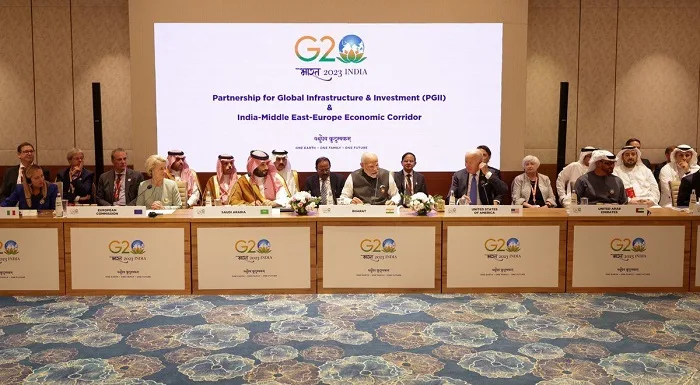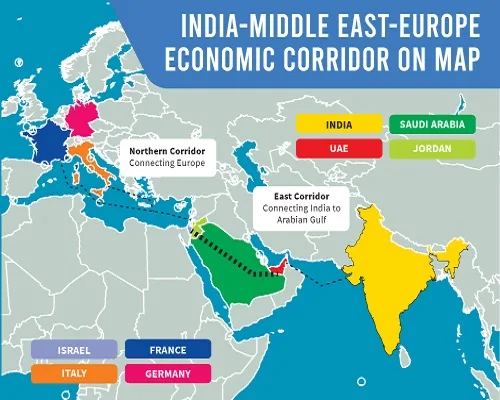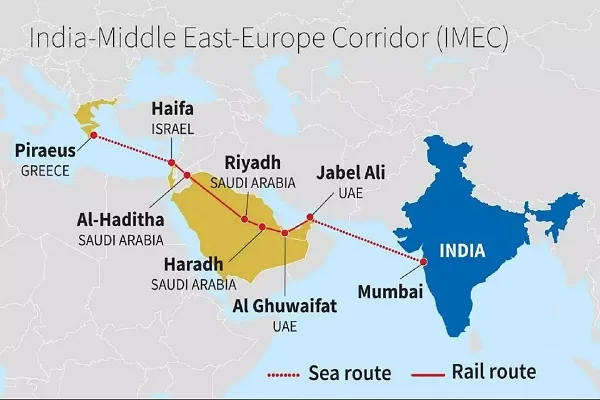G20 Unveils IMEC Trade and Transport Corridor
Backed mainly by India, UAE, Saudi Arabia, and EU, the India – Middle-East – Europe Corridor (IMEC) will traverse the oil-rich region of the Arabian Peninsula. As part of the G20 Summit, the forum on this topic reached an agreement in principle and a key first step.
The stakeholder countries agreed to meet in the coming months to hash out the details. The #IMEC is part of the Partnership for Global Infrastructure and Investment (#PG2I).

EC Commissioner Ursula von der Leyen chipped in by stating that the India – Middle-East – Europe Corridor (#IMEC) will potentially make trade between India and Europe faster and cheaper. The IMEC could cut down transit time by as much as 40%.
Some initial details reveal that the Corridor will have to be multimodal with some segments being on the sea and other on roads or rail. The probable routing is as follows.
The IMEC will take as starting point the economic capital and seaport city of Mumbai. It will connect by sea to Dubai on the Persian Gulf. It will then connect to several cities in the hinterland of the Arabian Peninsula, including the Riyadh, the Capital of Saudi Arabia.

Then it reaches the coastal city of Haifa on the Mediterranean Sea. From there, it is back on the ship to connect to Pireaus port in Greece or Gioira Tauro Italy. From these seaports, it is then easy to link other European cities via road or rail.
The USA was quick to point out that this project would be a ‘better alternative’ to the #BRI proposed by China. Observers welcomed the new addition to the list of #EconomicCorridors is significant because ‘the more, the merrier’ and competition generally leads to better alternatives. Geopolitical analysts point out that enhanced connectivity and trade in the volatile region of the Middle-East could contribute to its long-term stability.

